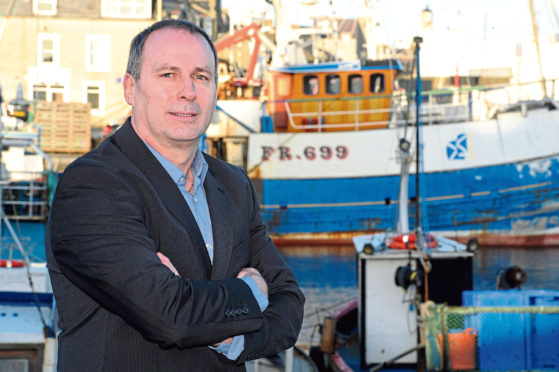Fishing chiefs have welcomed a change to immigration rules they hope will make it easier to recruit skilled deckhands from abroad.
The Home Office has accepted a recommendation from the Migration Advisory Committee – an independent body that advises the UK Government on migration issues – that deckhands on larger vessels with three or more years’ experience should be included in the list of occupations eligible for skilled worker visas.
Applying to the crewing of fishing boats bigger than nine metres (29.5ft), the rule change is expected to be particularly helpful to the white-fish fleet.
Scottish White Fish Producers’ Association chief executive Mike Park said: “This is something we have been campaigning about for over four years, and the industry will find it very useful and supportive.
“We’re really grateful for the effort put in by David (Duguid) as the MP for Banff and Buchan over this, and for the support of the government getting it through.
“It’s a big issue for boats operating out of Scotland’s western archipelago, some of which face issues with being forced to operate outside the 12-mile limit.
“It’s a big deal for them and for getting crew ashore for rest.”
Although deckhands are not being added to the UK’s official “shortage occupation list” (Sol), which specifies which jobs have insufficient domestic workers, they will become eligible for skilled worker visas.
To qualify, their sponsoring employer must be offering a salary of at least £25,600, in line with other non-shortage occupations.
If the deckhand is a new entrant to the industry, mainly those aged under age 26, a lower salary threshold of £20,480 will apply.
In all cases, deckhands’ pay must also be at least £10.10 per hour.
The rule change will take effect from April 6.
Announced in the UK Parliament by Future Borders and Immigration Minister Kevin Foster, the measure also applies to experienced “vent chicken sexers” in the poultry industry.
Meanwhile, the UK Government has added eight occupations in the health and care sector, as well as modern language teachers to its Sol list.
Chefs have been taken off the list but they will continue to be eligible for the skilled worker visa route to jobs in Britain.
Mr Duguid said the greater flexibility for crewing was “good news” for the Scottish fishing industry.
The Conservative MP for Banff and Buchan added: “I listened to the concerns about crewing problems and worked hard over the past few years to secure this agreement from the Home Office.
“This issue has been a real problem for the white-fish fleet.
“Some boats locally have been unable to fish within 12 miles of the shore because of visa restrictions affecting their deckhands.”
Skilled worker visas allow people to come to or stay in the UK to do an eligible job with an approved employer.
But they are not free – the standard charge ranges from £610 to £1,408, depending on circumstances.
There is also a healthcare surcharge – usually £624 per year – and applicants normally have to have at least £1,270 in savings available to support them after their arrival in the UK.
